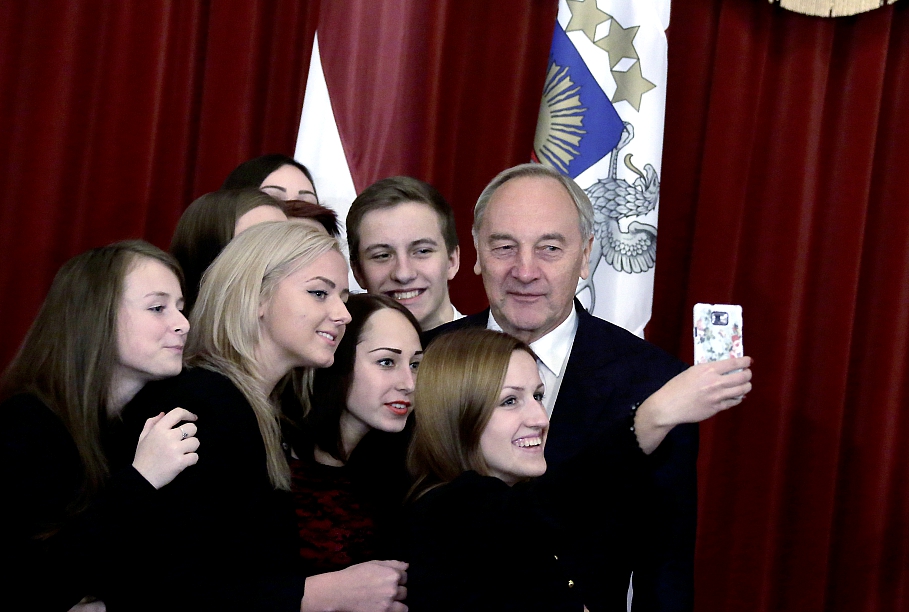At least, that seems to be the view in parts of the western media where one can sense an insatiable desire for flags to be waved, icons of Putin to be lovingly cradled and barricades to be erected in Latgale. If we're "lucky" we might even get a few Molotov cocktails, if only because the word "Molotov" adds so nicely to the expected picture of Soviet revivalism.
On a weekly basis, I am asked what's going on in Latvia's eastern districts, if Latgale is in ferment, if there are Crimea-style militias drilling in secret training camps.
The answer is: "No there are not," which always elicits a sigh of disappointment and mild disbelief from the other end of the line.
But they are Russians aren't they? Surely they must love Putin!
The net result of this disbelief is that an ace reporter is then dispatched to get the real info from Daugavpils (or Narva in Estonia's case, as it's more photogenic with those two castles inevitably "staring at each other across the border", or Visaginas in Lithuania's as it's the only place with lots of Russians apart from a Vilnius taxi rank). It will be a big story.
He or she then returns to base having recorded lots of unhelpful Russian-speakers saying that while there are some problems, they are in the main perfectly happy. No, they do not want a return of the USSR.
Always, the closest the reporter gets to the desired "I want Putin to save me" quote is a pensioner saying "We all had jobs back then," which is perfectly true. There were jobs. Bad ones. It was the law.
The journalist does his or her best but the editor is not impressed. It is not a big story. Maybe we'll use it at the weekend, as there's not much sport happening on Saturday.
So there was quite a kerfuffle a couple of weeks ago when the mayor of Kraslava was quoted saying there were signs of pro-Kremlin agitation in the town from unnamed individuals. Flights to Riga were booked.
Then the mayor claimed he'd never even made the comments attributed to him. Follow-ups from LSM and others failed to find any evidence of agitation beyond the names of a couple of wing-nuts known to everyone who are viewed as clowns by Russians just as they are by Latvians. Flights to Riga were cancelled.
Commentators such as Edward Lucas of The Economist make a valid point when they say an important opportunity was missed in the years following the restoration of independence in 1991 to help create a 'Baltic Russian' identity to contrast with the 'Russian Russian' template fixed in Moscow (let's also remember that Russia itself is far more diverse than is usually acknowledged in either east or west).
Yet what seems increasingly evident is that Baltic Russians are not precisely the same as their counterparts across the border. They share a language and a culture, but they are different because they possess and are keen to keep the democracy to which they belong and which in many cases they actively helped to earn.
The best evidence of it so far came this week with an LSM report on the attitudes of young people from Latgale to their country. Instead of graven-faced or tearful declarations of undying loyalty, they simply laughed at suggestions they were somehow closer to Moscow than Riga because Russian was their mother tongue (all also spoke fluent Latvian).
They were glad to be young, glad to be Russian and glad to be Latvian. They were hugely enthusiastic and provided a timely reminder that being part of a nation is something that is different for everyone. There is not just one 'right' way to be a Latvian. They give real hope for the future of the country.
With seminars and briefings on a weekly basis talking up the threat posed by Kremlin "hybrid warfare" and disinformation, we should be impressed that despite being bombarded with such nonsense, Latvia's Russians are remarkably resilient to it.
It's inherently patronizing to think that "we" can see through the propaganda whereas "they" cannot.
Yes, propaganda is dangerous, not least because it gets journalists into the habit of reporting things they know or suspect to be untrue.
People are not stupid. Russians are no more susceptible to advertising techniques than Westerners, and for all their huge state-backed budgets, Russian propaganda efforts are often little more than glorified advertising campaigns.
If you are subjected to a relentless 24-hour ad campaign telling you that Putin Automatic washing powder is the best washing powder ever, you do not necessarily believe it.
On the contrary, while being aware of the existence of Putin Automatic - which washes whiter than white even with bloodstains - you will eventually decide to buy anything as long as it's not that annoying Putin Automatic which makes claims so outrageously unrealistic they cannot possibly be true.
Adolescents are even more skeptical and sophisticated than adults when it comes to processing advertising messages - and therefore propaganda. As the kids from Latgale so clearly demonstrated, Putin Automatic is just not a "cool" brand any more whereas before too long, being a Baltic Russian just might be.
(Views expressed are the writer's own)































